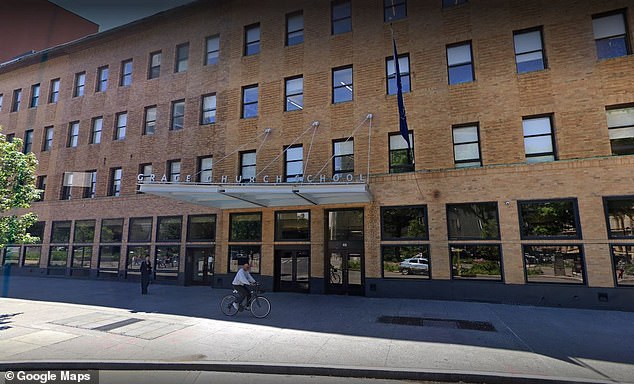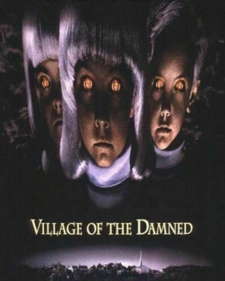
Paul Rossi, Teacher
A private Manhattan high school that charges $57,000 annual tuition has been blasted by one of its own teachers for indoctrinating students with ‘anti-racism’ ideology that ‘induces shame’ in white students for being ‘oppressors’.
Paul Rossi, a math teacher at the school, says that he went public with his complaints against his employer, Grace Church High School in the East Village of New York City, even though he is aware it might cost him his job. Rossi published his blog on former New York Times Opinion writer Bari Weiss’s Substack newsletter.
But a spokesperson for the school, whose famous graduates include X-Files actor David Duchovny and New York Times columnist David Brooks, told DailyMail.com that Rossi will not be fired or disciplined in any way for going public with his criticisms.
Weiss has accused the paper of bowing to criticism on Twitter, and has blasted ‘cancel culture’ where liberals and conservatives who speak out against the majority are attacked and threatened.
In his blog, Rossi wrote: ‘As a teacher, my first obligation is to my students. But right now, my school is asking me to embrace ‘antiracism’ training and pedagogy that I believe is deeply harmful to them and to any person who seeks to nurture the virtues of curiosity, empathy and understanding.’
Rossi says that he and other teachers at the school are required to ‘treat students differently on the basis of race.’
He also claims that faculty members at the school are ‘directed to confine…doubts about this pedagogical framework to conversations with an in-house ‘Office of Community Engagement’ for whom every significant objection leads to a foregone conclusion.’
Topher Nichols, a spokesperson for Grace High School, shared with DailyMail.com a letter that was sent on Tuesday to faculty, staff, and parents in response to Rossi’s claims.
In the letter, longtime head of school George P. Davison said that Grace has ‘respect for the wide spectrum of political views that our faculty members hold.’
‘However, it is our expectation that our faculty and staff find appropriate venues and times to raise concerns.’
‘As you may be aware, a member of the faculty wrote and posted an article that is critical of Grace and of our efforts to build a school where everyone feels they belong,’ the letter continues.
‘The process of building a community is often challenging, and I am disappointed that this individual felt it necessary to air his differences in this way.
‘We have always held the goal of fostering an environment that is safe and welcoming for all members of the community across a myriad of differences.
‘This is a work in progress, and while we are not always as successful as we would hope, we know that it requires the constructive engagement of everyone in the community.’

Grace Church High School is a $57,000-a-year private school whose famous alumni include actor David Duchovny and New York Times columnist David Brooks
The letter continues: ‘We have for many years sought to fulfill the school’s mission that ‘we nurture in our students a steady, affectionate trust in themselves and their world’ so they may be ‘made resilient by the interaction of different ethnic, religious, and socio-economic influences’.’
The letter states that Grace High School has developed a ‘diversity mission statement’ that ‘serves as a north star for creating a clear sense of belonging for everyone in our community.’
The mission statement reads: ‘Inclusion is not enough and equity is an impossibility if we cannot name, acknowledge, and oppose the forces of racism and all forms of bias, hate, and fear that exist in our society and that seek to diminish so many in our midst.’
Rossi writes that he came forward because he ‘can’t stay silent’ while ‘witnessing the harmful impact’ that antiracism instruction has on children.
He claims that students at Grace High School ‘are pressured to conform their opinions to those broadly associated with their race and gender and to minimize or dismiss individual experiences that don’t match those assumptions.’
While white students are ‘assigned’ the ‘morally compromised status of ‘oppressor’,’ minority students are being ‘cultivated’ with the idea that they are ‘oppressed’ as well as ‘resentful, morally superior, and dependent.’
‘All of this is done in the name of ‘equity,’ but it is the opposite of fair,’ according to Rossi.
‘In reality, all of this reinforces the worst impulses we have as human beings: our tendency toward tribalism and sectarianism that a truly liberal education is meant to transcend.’
Rossi also alleges that the school has held ‘whites-only’ student and faculty meetings on Zoom and that ‘such racially segregated sessions are now commonplace.’
He writes of the meeting: ‘It was a bait-and-switch ‘self-care’ seminar that labelled ‘objectivity,’ ‘individualism,’ ‘fear of open conflict,’ and even ‘a right to comfort’ as characteristics of white supremacy.’
Rossi says that during the session he ‘questioned whether one must define oneself in terms of racial identity at all.’

George P. Davison, the head of the school, sent a letter to parents, faculty, and staff criticizing Rossi for not choosing an ‘appropriate venue’ to air his claims
‘It seemed like my questions broke the ice,’ he writes.
‘Students and even a few teachers offered a broad range of questions and observations.
‘Many students said it was a more productive and substantive discussion than they expected.’
Rossi claims that after it was learned that he had challenged the prevailing orthodoxy, he was told by the head of the high school that he had ’caused harm’ to students.
According to Rossi: ‘I was reprimanded for ‘acting like an independent agent of a set of principles or ideas or beliefs’.’
Rossi claims that the school’s ‘director of studies’ said that his remarks ‘could even constitute harassment.’
He says that days after the Zoom meeting, his boss told all high school advisers to ‘read a public reprimand of my conduct out loud to every student in the school.’
According to Rossi, the statement read: ‘Events from last week compel us to underscore some aspects of our mission and share some thoughts about our community.
‘At independent schools, with their history of predominantly white populations, racism colludes with other forms of bias (sexism, classism, ableism and so much more) to undermine our stated ideals, and we must work hard to undo this history.’
Rossi says that he is now required to ‘participate in restorative practices designed by the Office of Community Engagement’ so as to ‘heal my relationship with the students of color and other students in my class.’
He claims that students at the school are also required to commit to a ‘Student Life Agreement’ which states that they must acknowledge that ‘the world as we understand it can be hard and extremely biased.’
 According to Rossi, students must ‘recognize and acknowledge their biases when we come to school, and interrupt those biases’ as well as and accept that they will be ‘held accountable should they fall short of the agreement.’
According to Rossi, students must ‘recognize and acknowledge their biases when we come to school, and interrupt those biases’ as well as and accept that they will be ‘held accountable should they fall short of the agreement.’
Faculty members have even come out in support of ‘officially flagging students’ who are ‘resistant’ to the ‘culture we are trying to establish,’ according to Rossi.
He says that students will be ‘flagged’ if they ‘persist with a colorblind ideology’ or ‘suggest that we treat everyone with respect.’
Rossi writes that students are also discouraged from ‘a belief in meritocracy.’
He claims that last fall, as the nation was roiled by racial protests in the wake of the police-involved killing of George Floyd, his students ‘expressed dismay with the ‘Grace bubble’ and sought to engage with a wider range of political viewpoints.’
Rossi says he wanted to assign his students a book by Brown University professor Glenn Loury, an African American academic who takes a ‘nuanced, center-right position on racial issues in America.’
‘Unfortunately, my administration put the kibosh on my proposal,’ Rossi writes.
‘The head of school responded to me that ‘people like Loury’s lived experience—and therefore his derived social philosophy’ made him an exception to the rule that black thinkers acknowledge structural racism as the paramount impediment in society.’
According to Rossi, he was told that ‘the moment we are in institutionally and culturally, does not lend itself to dispassionate discussion and debate’ and that assigning Loury would ‘only confuse and/or enflame students, both those in the class and others that hear about it outside of the class.’
Rossi writes: ‘He preferred I assign ‘mainstream white conservatives,’ effectively denying black students the opportunity to hear from a black professor who holds views that diverge from the orthodoxy pushed on them.’
Reaction online to Rossi’s blog post was largely critical of the school.
Jay Nordlinger, an editor for the magazine National Review, praised Rossi and said the situation at his alma mater ‘reeks of Maoism.’
Matt Mullen wrote that Rossi’s blog post describes a school that engages in ‘totalitarian thought control.’
Another commenter on Substack praised Rossi for ‘speaking truth to power’ and that as a New York City parent they have ‘seen it first hand.’
Another commenter pushed back against ‘our culture’s current fascination with race and gender.’
One commenter said that ‘it is a cancer’ that was ‘spreading rapidly.’
Written by Ariel Zilber for The Daily Mail ! April 13, 2021

 FAIR USE NOTICE:
FAIR USE NOTICE: